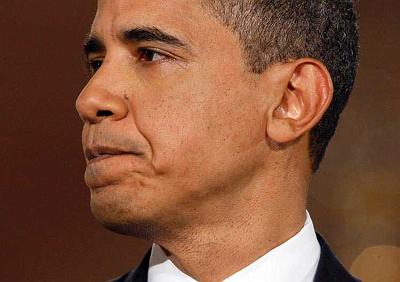Obama Extends Patriot Act
By aaroncynic in News on May 27, 2011 8:40PM
 With only hours before its expiration, the House voted last night 250-153 to extend the Patriot Act, which President Obama then signed via autopen minutes before the deadline. The reauthorization adds another four years to the life of various provisions of the act, including roving wiretaps, court ordered searches of business records and surveillance of suspected “lone wolf” terrorists. Kentucky Senator Rand Paul was the most vocal of opponents to the extension, highlighting its ability for sweeping abuses of privacy rights concerning American citizens.
With only hours before its expiration, the House voted last night 250-153 to extend the Patriot Act, which President Obama then signed via autopen minutes before the deadline. The reauthorization adds another four years to the life of various provisions of the act, including roving wiretaps, court ordered searches of business records and surveillance of suspected “lone wolf” terrorists. Kentucky Senator Rand Paul was the most vocal of opponents to the extension, highlighting its ability for sweeping abuses of privacy rights concerning American citizens.
Though Democratic Senate Majority Leader Harry Reid cheered the bill’s extension, saying that opposition would “take away the best tools we have for stopping (terrorists),” some Democratic Senate members joined Paul’s opposition. The Tribune reports Sen. Dick Durbin saying that, though he voted for the act in 2001, he “soon realized it gave too much power to government without enough judicial and congressional oversight.”
While proponents of the Patriot Act quickly point to its use in killing Osama Bin Laden and the capture of other terrorists, the ACLU, among other opponents, have pointed out its potential to severely impact the lives of ordinary Americans with no criminal record. Court approvals for business record access more than tripled last year and the ACLU has argued that the Act blurs the line between terrorist investigations and Americans who aren’t suspects in any kind of investigation.
The Patriot Act should come under close scrutiny, particularly because the official government interpretation of it remains classified. While the Obama Administration likes to tout commitment to transparency, it often acts in the complete opposite. This administration has not only kept such information classified, but has also prosecuted more government whistleblowers than all other Presidents before him, using the Espionage Act of 1917 to equate whistleblowing with spying. With a sentiment like that running rampant in Washington, we more than sympathize with Sen. Mark Udall’s (D-Colo.) statement: “If we cannot limit investigations to terrorism or other nefarious activities, where do they end?”